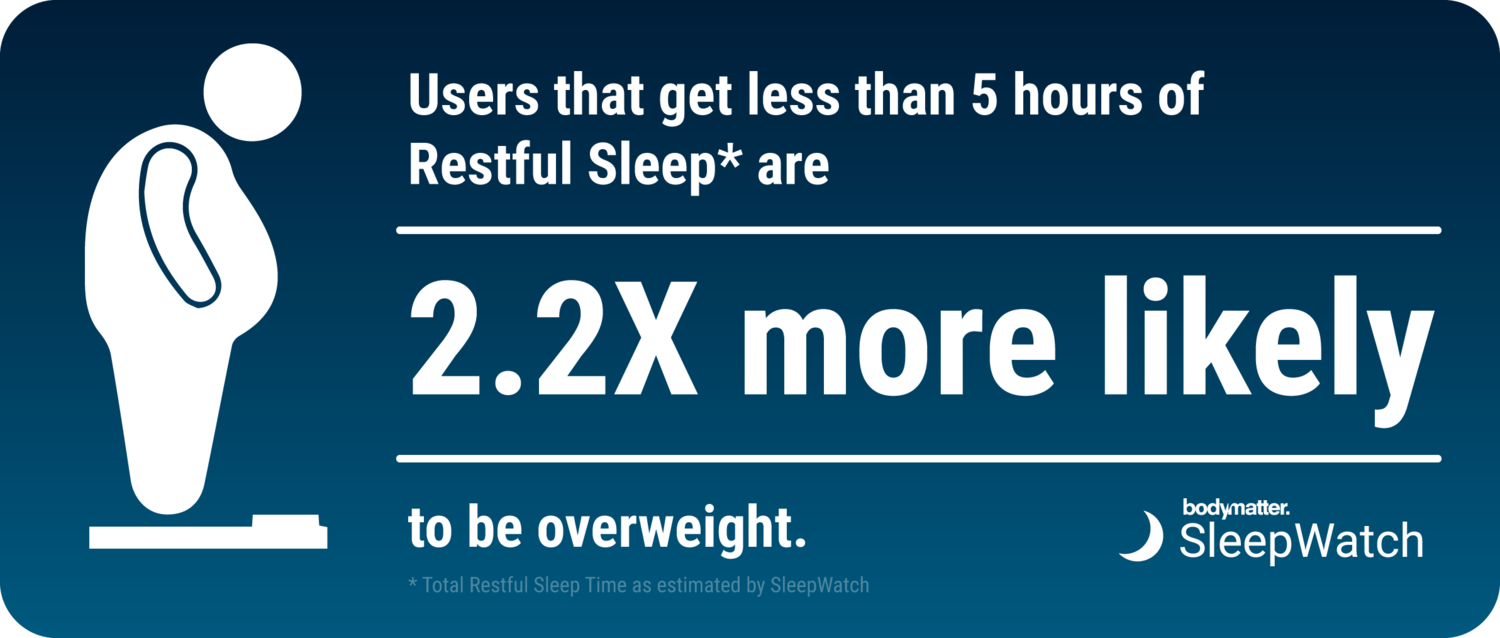-
Are you trying to diet and not prioritizing your sleep? You may want to think again.
Science is increasingly shedding light on the relationship between sleep and hormones as well as their influence on appetite and cravings.
Why Do Diets Fail?
Most diets fail because people are unable to develop a comprehensive strategy that takes into account their unique emotional and physical needs as well as their unique biochemical make-up. Think of a diet as a long-term battle made up of multiple tactics that will need to be integrated to achieve success.
The mantra has always been "control your caloric intake, increase your exercise and weight-loss is sure to follow". Between 1940 and the present, the percentage of people getting 7 to 8 hours of sleep has fallen from 85% to 59%. During this period the incidence of obesity has risen significantly. Recent data has shown that sleep loss affects on the hormones that control our appetite and may be a factor in our ability to maintain a healthy weight.
How Sleep And Obesity Are Linked: The Science
While there are many confounding issues with regard to obesity, there are a number of studies that reveal a link between sleep and two hormones—Ghrelin and Leptin—sometimes referred to as the “hungry and not-hungry (satiety) hormones". These two hormones seem to play an important role in the regulation of food intake and body weight. Leptin is made by fat cells and functions to induce weight loss by signaling the brain to inhibit food intake and stimulate metabolic rate. Ghrelin is released primarily in the stomach and is thought to signal hunger in the brain. A lack of sleep causes Ghrelin levels to increase and leptin levels to decrease. A prominent feature of obesity is leptin resistance, which is the inability of high circulating levels to decrease ones appetite. It is also noted that Ghrelin rises during periods of acute or chronic stress. Both of these hormones exert their effect on a part of the brain called the hypothalamus.
A lack of sleep causes Ghrelin levels to increase. Ghrelin is thought to signal hunger in the brain.
Sleep deprivation affects our body’s sensitivity to insulin, a hormone that regulates our blood sugar and helps remove fatty acids and lipids from our blood stream thereby preventing their storage in fat cells. Cortisol—often referred to as the "stress hormone"—follows a circadian rhythm, typically lowest around midnight and highest around nine A.M. Lack of sleep is associated with high cortisol levels, which is frequently associated with gain in body fat. High cortisol levels may also stimulate the appetite for high calorie foods.
If you’ve tried a lot of diets, various exercise routines and regimens, you may want to look into what is going on with your sleep.
Strategies for A Successful Night Sleep
At Bodymatter, we help our SleepWatch users more easily track and learn about their personal sleep patterns. In doing so, over 45,000 users have told us that SleepWatch has helped them to improve their sleep §. Below are some suggestions designed to help you achieve a good night's sleep.
Calculate a bedtime based upon what time you need to get up and count back at least 7.5 hours, that should be your sleep time. As a general rule it is important to maintain a regular sleep schedule with as much overlap on a day-to-day basis. We track our users Sleep Rhythm because it may be an important factor in your performance, mood and sleep quality.
Avoid exposure to bright light and bright electronic screens close to your bedtime.
Eat food earlier in the evening and not too close to your scheduled bedtime. During the day, try to maintain some regularity with your meal times.
Create and adopt a bedtime ritual that promotes relaxation and stress relief utilizing techniques such as meditation, a warm shower or perhaps mellow music.
Keep the bedroom around 68 degrees Fahrenheit and as quiet as possible.
Block out all light in the bedroom.
SleepWatch Users that Get Poorer Sleep Are More Likely to be Overweight ‡
SleepWatch not only enables users to track estimates of how much Total Sleep they are getting each night, but it also enables users to track how much Restful Sleep they are getting. Restful Sleep is our estimate of what may be a deeper, more restorative, state of sleep †.
When analyzing the relationship between sleep and body mass index (BMI) of anonymized SleepWatch user data, we find that those SleepWatch users that do not get at least 5 hours of Restful Sleep* each night are 2.2X more likely to be overweight.

The data and science are increasingly shedding light on the relationship between sleep and hormones as well as their influence on appetite and cravings.
Are you trying to diet and not prioritizing your sleep? You may want to think again. Inadequate sleep may be sabotaging your efforts.







